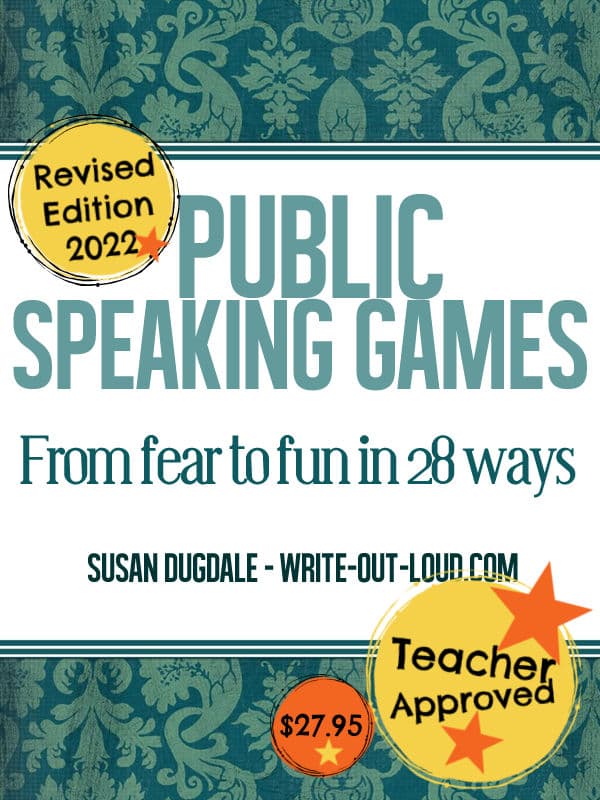Games for Public Speaking
Games for public speaking can be a fun and effective way to improve communication skills and boost confidence in speaking in front of an audience. These games provide engaging and interactive opportunities for participants to practice expressing their thoughts and ideas, develop persuasive techniques, and enhance their ability to engage and captivate listeners.
Whether it’s through improvisation, storytelling, or debate, these games offer a platform for individuals to enhance their public speaking abilities in a supportive and enjoyable environment. By incorporating elements of strategy, creativity, and problem-solving, these games not only make the learning process enjoyable but also help participants to become more effective communicators in various professional and personal settings.
Enhancing Communication Skills Through Interactive Activities
Enhance your communication skills through interactive activities and engaging games that focus on public speaking. These games provide practical opportunities to develop confidence, clarity, and persuasive abilities, making public speaking an enjoyable and effective learning experience.
Games For Public Speaking:
Public speaking can be an intimidating task, causing anxiety and nervousness in many individuals. However, through interactive activities and games, communication skills can be enhanced in a fun and engaging manner. These games not only help in building confidence but also provide a platform to practice and improve speaking skills.
In this blog post, we will explore three types of games for public speaking: Icebreaker games, Role-playing games, and Storytelling games. Let’s dive in!
Icebreaker Games:
Icebreaker games are a great way to warm up and create a comfortable environment for effective communication. These games stimulate conversations, encourage interaction amongst participants, and promote active listening skills. Here are some popular icebreaker games for public speaking:
- Two Truths and a Lie: Each participant shares three statements about themselves, two of which are true and one is a lie. Other participants have to guess which statement is the lie, leading to communication and interaction.
- Would You Rather: Participants are presented with two hypothetical scenarios and have to choose between the two options. This game initiates discussions and encourages participants to express their opinions and reasoning.
- Who Am I? : Participants are given the name of a famous person or a character and have to ask yes or no questions to guess their identity. This game promotes active listening and effective questioning skills.
Role-Playing Games:
Role-playing games provide an immersive experience for participants to practice public speaking in realistic scenarios. These games allow individuals to step into different roles and explore different communication styles. Here are some popular role-playing games for public speaking:
- Press Conference: Participants take on roles as newsmakers, journalists, and moderators. They engage in a mock press conference, practicing effective communication, and thinking on their feet.
- Debate: Participants are divided into teams and are given a topic to debate. This game enhances critical thinking, persuasive speaking, and the ability to construct well-structured arguments.
- Job Interview: Participants simulate a job interview scenario, taking turns as interviewers and interviewees. This game enhances communication skills, confidence, and the ability to answer questions effectively.
Storytelling Games:
Storytelling games help individuals develop their narrative skills, creativity, and delivery techniques. These games encourage participants to think on their feet, improve public speaking skills, and captivate their audience. Here are some popular storytelling games for public speaking:
- Word Association Story: Participants take turns adding one word to create a story. This game improves improvisation, storytelling skills, and encourages active listening.
- Picture Prompt: Participants are given a picture and have to create a story based on it. This game enhances creativity, narration skills, and the ability to engage an audience.
- Story Chain: Participants continue a story by adding a sentence or a paragraph each, building upon each other’s contributions. This game improves collaboration, storytelling, and listening skills.
By engaging in these interactive activities and games, individuals can enhance their communication skills, boost confidence, and develop effective public speaking abilities. Whether it’s an icebreaker game to initiate conversations, a role-playing game to practice real-life scenarios, or a storytelling game to improve narrative skills, incorporating these games into public speaking training can make the learning process enjoyable and impactful.
So, get ready to level up your communication skills through these games and become a confident and effective communicator!

Credit: www.youtube.com
Breaking The Ice And Building Confidence
Discover fun and engaging games designed to break the ice and boost confidence in public speaking. These interactive activities provide a unique and effective way to enhance your communication skills, leaving you feeling more comfortable and poised when addressing an audience.
Two Truths And A Lie:
- Two Truths and a Lie is a fun icebreaker game that helps participants get to know each other better.
- Each person takes turns sharing three statements about themselves, two of which are true and one that is a lie.
- The other participants then try to guess which statement is the lie.
- This game encourages creativity, critical thinking, and active listening.
- It helps break the initial awkwardness and builds a comfortable atmosphere for public speaking activities.
Would You Rather:
- Would You Rather is a popular game that sparks interesting discussions and encourages participants to make choices between two hypothetical situations.
- This game can be adapted for public speaking activities by asking participants to explain their reasoning behind their choices.
- It helps build confidence in expressing opinions and encourages analytical thinking.
- Participants can take turns presenting their chosen scenarios and explaining their thought processes, allowing for meaningful conversations and engaging public speaking practice.
- This game helps develop persuasive speaking skills and enhances critical thinking abilities.
Human Bingo:
- Human Bingo is an interactive icebreaker game that helps participants get to know each other and find commonalities.
- Each participant is given a bingo card with different personality traits or experiences listed in each square.
- The goal is to mingle with others and find individuals who match the descriptions on the card.
- When someone finds a match, they mark the square and continue meeting new people.
- This game encourages participants to engage in conversation, actively listen, and overcome shyness or discomfort in social situations.
- Human Bingo is an excellent way to break the ice and build connections before engaging in public speaking activities.
Developing Empathy And Improvisation Skills
Developing empathy and improvisation skills through games can greatly enhance public speaking. By engaging in interactive activities, individuals can learn to connect with their audience on a deeper level and think on their feet, boosting their confidence and communication abilities.
Games For Public Speaking:
Public speaking is a valuable skill that can be honed through various games and activities. In addition to enhancing communication abilities, these games also contribute to the development of empathy and improvisation skills. Empathy allows speakers to connect with their audience on a deeper level, while improvisation enables them to think quickly on their feet and adapt to unexpected situations.
Let’s explore three engaging games that can help individuals improve their public speaking skills.
Debate Club:
- Engage in structured debates on various topics to practice constructing and presenting arguments.
- Learn how to express opinions confidently while respecting opposing viewpoints.
- Develop critical thinking skills and the ability to think on your feet.
- Enhance research and analytical skills by gathering evidence and supporting arguments.
Mock Trials:
- Take part in simulated court proceedings to improve persuasive speaking skills.
- Assume the role of a lawyer, witness, or jury member to understand different perspectives.
- Enhance storytelling abilities by creating compelling narratives around a given case.
- Foster teamwork and cooperation while working with others to build a persuasive case.
Theatrical Improvisation:
- Participate in improv exercises to enhance spontaneity and adaptability.
- Learn to think quickly and respond effectively in unexpected speaking situations.
- Develop empathy by stepping into the shoes of different characters with diverse backgrounds and perspectives.
- Enhance non-verbal communication skills, such as body language and facial expressions.
Engaging in games like Debate Club, Mock Trials, and Theatrical Improvisation can significantly contribute to the development of empathy and improvisation skills in public speaking. These games not only provide a platform for practicing communication but also foster the ability to connect with an audience, think on one’s feet, and adapt to different speaking scenarios.
So why not embrace these games and unleash your full potential as a confident and empathetic speaker?
Developing Narrative Structures And Delivery Techniques
Developing narrative structures and delivery techniques is crucial in creating engaging games for public speaking. These strategies enhance the delivery of speeches, presentations, and discussions, making them more captivating and memorable for the audience.
Games For Public Speaking:
Public speaking is a valuable skill that requires effective narrative structures and delivery techniques. Here are some engaging games that can help in developing these essential skills:
Story Starters:
- Story starters are a great way to ignite creativity and enhance storytelling abilities. Use these game ideas to get started:
- Provide participants with a sentence or a phrase and encourage them to continue the story from there.
- Each person takes turns contributing a sentence and builds upon the narrative.
Story Cubes:
- Story cubes are dice with different images on each side. They can be an excellent tool for developing storytelling skills:
- Roll the dice and use the images that appear to inspire a story. Each player takes turns adding onto the narrative using the images as prompts.
- Encourage participants to think creatively and create unique stories based on the images rolled.
Word Association Games:
- Word association games can help improve impromptu speaking and enhance delivery techniques:
- Start with a random word and have each participant associate another word or phrase that relates to it. Keep the chain going to build a spontaneous narrative.
- Use a timer to add an element of quick thinking and encourage participants to stay focused and think on their feet.
These games for public speaking provide a fun and interactive way to develop narrative structures and delivery techniques. Whether it’s the use of story starters, story cubes, or word association games, these activities can help boost confidence, enhance storytelling skills, and improve overall public speaking abilities.
So, gather your friends or colleagues and start practicing these engaging games to level up your public speaking game!
Best Practices And Strategies For Success
Discover the best practices and strategies for success in public speaking with games that engage and empower. These innovative approaches provide a fun and effective way to boost confidence, enhance communication skills, and captivate an audience. Unlock your full potential and master the art of public speaking with these game-changing techniques.
Games For Public Speaking:
Public speaking can be a daunting task for many individuals, whether you’re a student presenting in the classroom or a professional delivering a presentation at work. Incorporating games into public speaking training sessions can be an effective way to enhance communication skills, build confidence, and engage participants.
In this section, we will explore the best practices and strategies for success when using games for public speaking.
Incorporating Games In Classroom Settings:
- Icebreaker Activities: Begin the session with icebreaker games to help participants feel comfortable and establish a positive atmosphere.
- Impromptu Speeches: Encourage participants to think on their feet by providing impromptu speaking exercises where they have to quickly formulate and deliver a speech on a given topic.
- Debate Games: Organize debate-style games where participants can practice persuasive speaking and argumentation skills.
- Mock Presentations: Create opportunities for participants to present on various topics in a mock setting, simulating real-world scenarios.
- Storytelling Games: Incorporate storytelling games that encourage participants to craft narratives and deliver them effectively to captivate their audience.
The Role Of Facilitators In Game-Based Learning:
- Clear Instructions: Facilitators should provide clear and concise instructions for each game, ensuring participants understand the objectives and rules.
- Active Participation: Facilitators should actively engage with participants during the games, providing guidance, feedback, and encouragement.
- Time Management: Facilitators need to manage the time effectively to ensure each game is completed within the allocated timeframe.
- Adaptability: Facilitators should be adaptable and flexible, adjusting the games according to the needs and skill levels of the participants.
- Facilitating Reflection: After each game, encourage participants to reflect on their experiences, sharing lessons learned and areas for improvement.
Assessment And Evaluation Methods:
- Rubrics: Use rubrics to evaluate participants’ public speaking skills based on criteria such as content, delivery, body language, and engagement with the audience.
- Peer Assessment: Incorporate peer assessment where participants provide constructive feedback to their peers, promoting self-reflection and learning.
- Self-Evaluation: Encourage participants to evaluate their own performance, identifying strengths and areas for improvement.
- Video Recordings: Record participants’ presentations for later analysis and feedback, allowing them to learn from their own performances.
- Continuous Improvement: Provide ongoing feedback and support to help participants continually improve their public speaking skills.
Remember, games for public speaking not only make the learning process fun and enjoyable, but they also provide a safe and supportive environment for individuals to practice and refine their public speaking skills. By incorporating these best practices and strategies, facilitators can ensure that participants develop confidence, enhance their communication abilities, and excel in public speaking engagements.
Building Confidence, Overcoming Fear, And Improving Communication
Enhance your confidence, conquer your fears, and boost communication skills with engaging games designed to improve public speaking. These interactive activities provide a fun and effective way to develop essential speaking abilities while building self-assurance in front of an audience.
Games For Public Speaking:
Public speaking can be a daunting task for many individuals. The fear of facing an audience, the anxiety of being judged, and the pressure to deliver a compelling message can all contribute to a lack of confidence and ineffective communication skills.
Fortunately, there are games and activities that can help individuals overcome these barriers, build confidence, and improve their overall public speaking abilities. In this blog post, we will explore the benefits of these games under three key headings: Breaking Down Barriers to Public Speaking, Developing Critical Thinking Skills, and Promoting Collaboration and Teamwork.
Breaking Down Barriers To Public Speaking:
- Improving Self-Expression: Games for public speaking provide individuals with a safe and supportive environment to practice expressing their thoughts and ideas. Through structured exercises, participants can gradually build their confidence in sharing their opinions and experiences.
- Reducing Fear and Anxiety: Public speaking games often focus on creating a non-threatening atmosphere that encourages individuals to step out of their comfort zones. By engaging in activities that challenge their fear of judgment and failure, participants can gradually overcome their anxieties and gain the confidence needed to speak in front of an audience.
- Building Verbal Skills: Games that target public speaking help individuals develop their oral communication abilities. By practicing articulation, voice projection, and clarity of speech, participants can enhance their verbal skills, making them more effective communicators in various contexts.
Developing Critical Thinking Skills:
- Enhancing Problem-Solving Abilities: Public speaking games often require participants to think on their feet, responding to prompts or questions in a spontaneous manner. This helps develop their ability to quickly analyze and synthesize information, enabling them to think critically and creatively in high-pressure situations.
- Improving Organization and Structure: Many public speaking games involve impromptu speaking or short presentations. These activities challenge individuals to effectively organize their thoughts and present them in a coherent and logical manner. This promotes the development of strong organizational skills, ultimately leading to better communication and persuasive abilities.
- Expanding Perspective and Empathy: Public speaking games often involve engaging with diverse topics or assuming different roles or perspectives. These activities encourage individuals to step outside their own experiences and consider alternative viewpoints. This cultivates empathy and allows participants to understand and connect with others on a deeper level.
Promoting Collaboration And Teamwork:
- Encouraging Active Listening: Public speaking games frequently emphasize the importance of active listening. By actively listening to their peers’ speeches or responses, participants develop their ability to pay attention, understand different perspectives, and provide constructive feedback. This skill is crucial for effective teamwork and collaboration.
- Fostering Cooperation and Support: Public speaking games often require individuals to work in pairs or small groups. Collaborative activities encourage participants to support and motivate each other, fostering a sense of teamwork. This not only enhances public speaking skills but also helps individuals develop essential interpersonal communication skills.
- Building Trust and Bonding: Games that involve public speaking create a sense of camaraderie and shared experience among participants. By facing their fears together and supporting one another, individuals develop trust and establish stronger connections. This sense of belonging can have a profound impact on their confidence and overall communication skills.
Public speaking games provide an enjoyable and effective way to build confidence, overcome fear, and improve communication skills. By breaking down barriers to public speaking, developing critical thinking skills, and promoting collaboration and teamwork, these games empower individuals to become more confident and impactful speakers.
So, why not give these games a try and take your public speaking abilities to new heights?
Real-World Examples Of Games For Public Speaking
Discover real-world examples of engaging and interactive games designed to enhance public speaking skills. These games provide a practical and fun way to improve communication and confidence in public speaking scenarios. Get ready to level up your skills and conquer the stage!
Public speaking can be a nerve-wracking experience for many people. However, incorporating games into your training can help enhance your public speaking skills in a fun and interactive way. In this blog post, we will explore some real-world examples of games for public speaking, including TEDx Speaker Bootcamp, Toastmasters International, and Corporate Training Programs.
Tedx Speaker Bootcamp:
- Provides hands-on training for aspiring TEDx speakers.
- Focuses on storytelling, content creation, and delivery skills.
- Includes workshops, mentorship programs, and practice sessions.
- Offers guidance from experienced speakers and industry professionals.
- Utilizes games and activities to enhance public speaking skills.
Toastmasters International:
- A renowned organization dedicated to improving public speaking and leadership skills.
- Offers a supportive and structured environment for individuals to practice speaking.
- Conducts regular meetings where participants give speeches and receive feedback.
- Provides opportunities to take on different roles, such as evaluator or timekeeper.
- Utilizes games like Table Topics, where participants give impromptu speeches on various topics.
Corporate Training Programs:
- Many companies offer specialized training programs to enhance public speaking skills.
- These programs focus on the unique challenges of public speaking in a corporate setting.
- Incorporate interactive activities, role-playing exercises, and mock presentations.
- Address topics such as effective communication, persuasion, and body language.
- Provide personalized feedback and coaching to help individuals improve.
Games for public speaking can be an effective way to build confidence, improve communication skills, and engage participants in an interactive learning experience. Whether you choose to participate in a TEDx Speaker Bootcamp, join Toastmasters International, or enroll in a corporate training program, incorporating games into your public speaking journey can make the process more enjoyable and effective.
So, why not give it a try and level up your public speaking skills through gamified learning?
Frequently Asked Questions On Games For Public Speaking
Are There Any Games That Can Help Improve Public Speaking Skills?
Yes, there are several games that can help improve public speaking skills. Some popular options include impromptu speaking games, debate games, and role-playing games. By practicing these games regularly, individuals can enhance their communication, confidence, and ability to think on their feet.
How Can Games Make Public Speaking More Enjoyable?
Games can make public speaking more enjoyable by adding an element of fun and competition. They create a low-pressure environment, allowing individuals to practice their speaking skills in a relaxed setting. By incorporating games into training or workshops, participants can engage in interactive activities that make the learning process enjoyable.
What Are Some Benefits Of Using Games For Public Speaking?
Using games for public speaking offers various benefits. It helps individuals overcome the fear of speaking in front of others, improves confidence, enhances communication skills, and fosters creativity. Additionally, games provide opportunities for constructive feedback and create a supportive learning environment.
Incorporating games makes the learning process engaging and enjoyable.
Conclusion
In this blog post, we explored a variety of games that can enhance your public speaking skills. These games serve as valuable tools for anyone looking to improve their confidence, delivery, and overall effectiveness as a speaker. By engaging in activities such as improv games, storytelling exercises, and impromptu speeches, you can cultivate a strong presence and develop the ability to connect with your audience.
Furthermore, these games provide a fun and interactive way to practice public speaking, making the learning process enjoyable and memorable. Remember, the key to becoming a better speaker is practice and perseverance. So, don’t be afraid to step out of your comfort zone and give these games a try.
With time and effort, you’ll become a more confident and impactful communicator. Start playing these games and unlock your full potential as a public speaker today!



